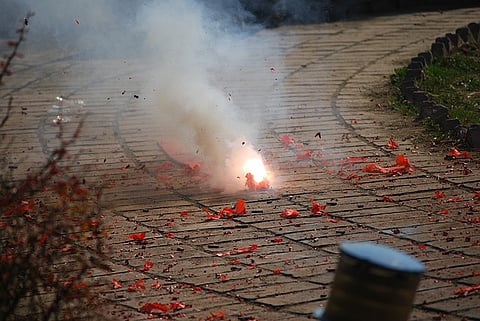

After the apex court banned the sale of crackers in the Delhi-NCR area till November 1 in an effort to check pollution, the move has affected fireworks manufacturers in Tamil Nadu.
According to Deccan Chronicle, stocks worth Rs 500 crore, which had been sent for sale to the region, are being returned by retailers and distributors. This has left many manufacturers in the lurch as they do not know how they can pay wages. They are also apprehensive that this ban might extend to other states.
The Delhi-NCR region accounts for nearly 10-15% of the total fireworks production, according to AMS Ashokan, the past president of Tamil Nadu Fireworks and Amorces Manufacturers Association (TANFAMA), Sivakasi. According to The Economic Times, NCR accounts for almost a quarter of the Sivakasi cracker industry's annual turnover of about Rs 4,000 crore.
This is just one of the many blows that the factories in Sivakasi have had to deal with. Business had also been impacted due to demonetisation and the introduction of the Goods and Services Tax.
“Post Deepavali 2016, the Centre announced its demonetisation programme. The money for the consignments that we dispatched for the festive season came into our coffers very late. Some of the traders settled their dues only in March/April. With consumers not having enough cash, the usual wedding orders and party orders (for New Year) were all put on hold. This was a major setback to the industry,” PCA Asaithambi, the current president of TANFAMA told The Hindu.
Ashokan also told Deccan Chronicle that while the bursting of crackers may be seasonal, the production of fireworks is not, and it provides livelihood to six lakh people in Sivakasi alone.
Over 25% of the total sale is based on credit, and sellers will be unable to recover their money as, if they ask for payments, the retailers and distributors would ask the sellers to take their stock back, Ashokan added.